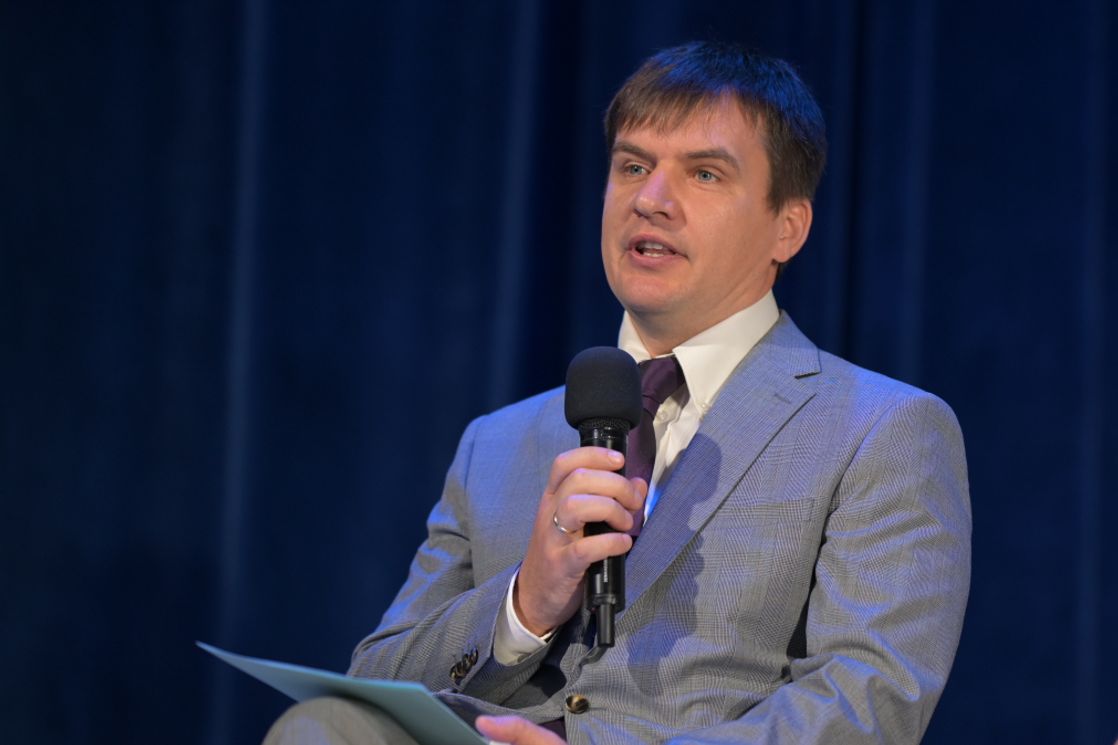Autism as a Global Challenge: HSE University Brings Together Experts from 15 Countries
Autism spectrum disorders (ASD) pose challenges not only in medicine, but also in education, social policy, and technology. Scientists, doctors, educators, and government representatives have discussed how science and practice can help people with such disorders at the conference ‘Autism. Challenges and Solutions.’ For the first time, the event has been held at HSE University.
The XIII International Conference ‘Autism. Challenges and Solutions’ took place at the HSE Cultural Centre on September 12–14 and brought together leading experts from Russia, the USA, Argentina, India, Israel, Brazil, the UAE, and other countries.
For the first time the conference has been held at HSE University, said Ekaterina Men, President of the Autism Challenge Center and moderator of the plenary session: ‘We’ve start talking about autism issues directly and openly. It is a great honour for us to host this conference at one of the world's leading universities, which has already conducted extensive work related to autism challenges.’
HSE University Vice Rector and Senior Director for Basic Research Alexander Balyshev noted that the event was organised on-site in Moscow for the first time in several years and has gained special significance.

‘Autism is perceived as a complex condition that requires an interdisciplinary approach, from psychology and pedagogy to genetics. HSE University combines fundamental research in the field of neuroscience and actively implements it into clinical practice,’ he stressed.
At the same time, the vice rector emphasised the role of the Center for Language and Brain, the Institute for Cognitive Neuroscience, and other HSE departments that develop tests and applications for doctors, educators, and parents. ‘Parents of children with autism make a huge contribution to this work, and their voice should also be heard,’ he said.

Olga Dragoy, Director of the Center for Language and Brain, focused on the study of speech disorders in autism. ‘Language and speech are distinctive features of any individual. When a child is unable to communicate fully, many development paths are blocked. We want to understand the conditions under which speech disorders occur and how to help the child adapt,’ she said.
Oleg Karpov, General Director of the Pirogov National Medical and Surgical Center, spoke about the importance of clinical and technological cooperation. He covered joint projects with HSE University and talked about unique neurosurgical operations involving awake patients. ‘This is an example of how a multidisciplinary approach—medical, pedagogical, and social—allows us to look for effective solutions to support people with autism,’ said Karpov.
The conference was also a platform for dialogue with government representatives. Yulia Sachko, Deputy Director of the Department of State Policy in the Field of Protection of Children's Rights at the Ministry of Education, recalled that in 2013, the category of students with ASD was first enshrined in law, and in 2023, federal adapted educational programmes were launched. ‘Today we are not at the beginning of the road, but also not in the middle. It is important that children with ASD receive high-quality and consistent education, and that we make inclusion a reality,’ she stressed.
Georgy Gubanov, Head of the Department of Mental Health at the Ministry of Health, noted that autism is becoming a more widespread issue every year. ‘We can make a diagnosis, but we can’t help a child without teachers and psychologists. That is why interdisciplinary cooperation is so important,’ he believes.
Kira Afonina, Deputy Director of the People with Disabilities Department under the Ministry of Labour and Social Protection, said that a comprehensive rehabilitation system will be gradually introduced in Russian regions starting in 2025. ‘Standards for adults and children with ASD have been approved for the first time. The implementation will be completed by 2030, and qualified personnel play a key role in this process,’ she said.
The experts paid special attention to the exchange of practices. Merry Barua, Founder and Director of Action for Autism at the National Centre for Autism (India), explained how approaches to supporting people with ASD have changed in recent decades and shared the centre’s experience. ‘We realised that we shouldn't force people with autism to become neurotypical. We need to learn to understand their language and adapt work and educational spaces to their needs,’ she explained.
At the end of the plenary session, Ekaterina Men noted that the forum was the result of the efforts of a large professional and parent community: ‘We are stepping away from a paternalistic position where experts determine everything for people with autism. Today it’s important to hear the people themselves, including those who do not speak but have the right to be heard. This conference is a product of the community, and that is its main strength.’
See also:
HSE Scientists Reveal How Disrupted Brain Connectivity Affects Cognitive and Social Behaviour in Children with Autism
An international team of scientists, including researchers from the HSE Centre for Language and Brain, has for the first time studied the connectivity between the brain's sensorimotor and cognitive control networks in children with autism. Using fMRI data, the researchers found that connections within the cognitive control network (responsible for attention and inhibitory control) are weakened, while connections between this network and the sensorimotor network (responsible for movement and sensory processing) are, by contrast, excessively strong. These features manifest as difficulties in social interaction and behavioural regulation in children. The study has been published in Brain Imaging and Behavior.
See, Feel, and Understand: HSE Researchers to Explore Mechanisms of Movement Perception in Autism
Scientists at the HSE Cognitive Health and Intelligence Centre have won a grant from the Russian Science Foundation (RSF) to investigate the mechanisms of visual motion perception in autism. The researchers will design an experimental paradigm to explore the relationship between visual attention and motor skills in individuals with autism spectrum disorders. This will provide insight into the neurocognitive mechanisms underlying social interaction difficulties in autism and help identify strategies for compensating for them.


